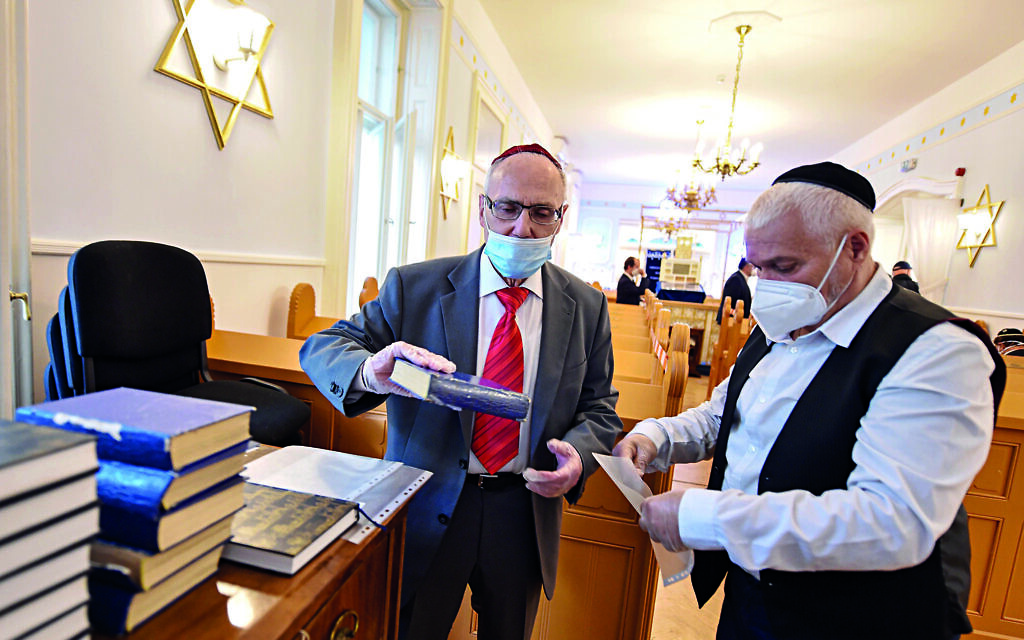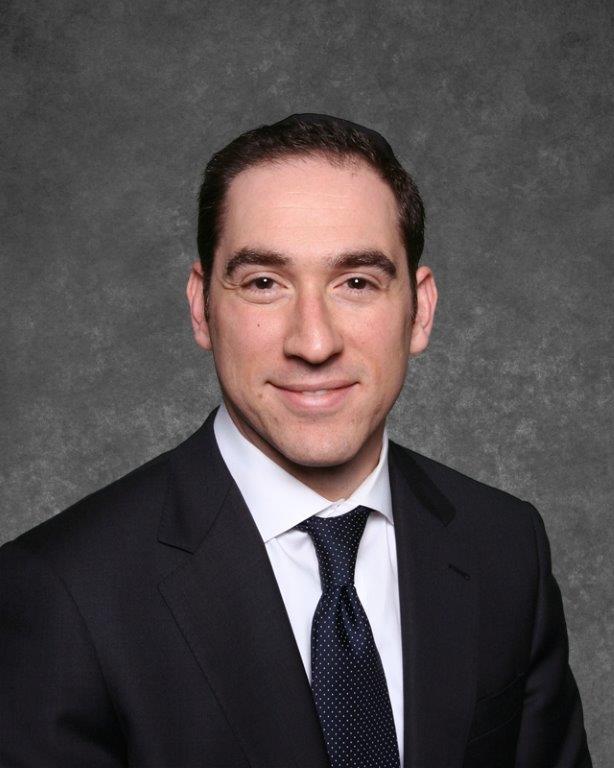Our post-covid community: ‘Being back? It’s emotional’
In the second part in our series on the pandemic’s lasting impact on Jewish life, leading rabbis tell Sandy Rashty how their shuls are operating and their hopes for the future

For years, Rabbi Harvey Belovski, the senior rabbi of Golders Green Synagogue, would make a daily short walk from his north-west London home to his congregation. He would wear traditional rabbinical clothes to lead morning services, deliver sermons on Shabbat and preside over simchas, from weddings to bar and batmitzvahs.
But when Covid-19 hit, all that changed. Minyans were prohibited and synagogues across the country closed their doors. Communities adapted by hosting shiurim and weekday services over Zoom and Facebook.
From 4 July, the government allowed shuls to reopen under certain conditions that included social distancing. And for Rabbi Belovski, that meant finally returning to synagogue.
Get The Jewish News Daily Edition by email and never miss our top stories Free Sign Up
“For the past few months there has been no routine, it has been very odd,” he said. “Initially it was quite upsetting as it’s part of the routine and you miss seeing people who come to pray and meet their friends. Now services have resumed, I am going to shul every evening and we are hoping to start morning services soon.”
For the first time in months, he took his rabbinical coat out of the cupboard and his hat out of its box – before he went on to lead the synagogue’s first Shabbat service in its garden.
Ordinarily 200 people, including children, would attend Shabbat services – but on its first reopening Friday night and Shabbat morning, about 60 people attended the synagogue. Rabbi Belovski said guidance for attendees to be aged over 12 accounted in part for the reduction.
He said the service was “emotional” but noted that congregants struggled to adapt to conditions. “Many people find wearing masks unpalatable, including me,” the rabbi said. “I set up davening outside, as masks are not required outside. But when the weather will change, we will have to make contingency plans.”
Going forward, Rabbi Belovski notes that some systems that have “worked well” under lockdown will continue. “We are now able to have international speakers talk to our community online, without flying them in and paying them large amounts of money,” he said.
Rabbi Joseph Dweck, senior rabbi of the S&P Sephardi community, has also had to adjust.
“Speaking publicly and at universities was a large part of my weekly diary that hasn’t happened for many months. We have had to adapt with all our S&P rabbis delivering more content online, from Zoom to Facebook.”
This month, Rabbi Dweck delivered his first in-person sermon on Shabbat at Lauderdale Road synagogue, attending with his eldest son. “I couldn’t believe we were finally going back to synagogue, it was surreal.”
Normally, more than 100 congregants would attend a service, but for the first service post-lockdown, 30 people came to synagogue. “Everyone was wearing masks and sitting separately. I was wearing a visor guard and we didn’t have people coming up to touch the Sefer Torah,” he said. “Our service is normally 2.5 hours, but we kept it down to 90 minutes, which we may take on going forward because younger families prefer it.”

Rabbi Dweck says the lockdown period has led to permanent changes. The S&P is looking to install cameras to allow more people to engage in synagogue life if they are vulnerable or live far away. But he is keen to stress the importance of people returning to shul. “In the same way the economy needs to rev up again, the community needs to be present to keep the lifeblood flowing.”
But Laura Janner-Klausner, senior rabbi at Reform Judaism, is more cautious about the physical return to synagogues. She says the movement has seen a 40 percent rise in synagogue attendance on Shabbat since services were streamed – and she hopes it continues.

“What is so beautiful about it – even though it is a situation that we never would have wanted – is that people who couldn’t leave the house before can now come to services. There’s now a smaller gap between the old and the young in our community.”
Going forward, she sees online forums and engagement with a synagogue life as a permanent element that is here to stay. “We could not go back now,” she said. “How could we hold our values of inclusivity, but then say to people who can’t get to shul, ‘tough luck’?”

Thank you for helping to make Jewish News the leading source of news and opinion for the UK Jewish community. Today we're asking for your invaluable help to continue putting our community first in everything we do.
For as little as £5 a month you can help sustain the vital work we do in celebrating and standing up for Jewish life in Britain.
Jewish News holds our community together and keeps us connected. Like a synagogue, it’s where people turn to feel part of something bigger. It also proudly shows the rest of Britain the vibrancy and rich culture of modern Jewish life.
You can make a quick and easy one-off or monthly contribution of £5, £10, £20 or any other sum you’re comfortable with.
100% of your donation will help us continue celebrating our community, in all its dynamic diversity...
Engaging
Being a community platform means so much more than producing a newspaper and website. One of our proudest roles is media partnering with our invaluable charities to amplify the outstanding work they do to help us all.
Celebrating
There’s no shortage of oys in the world but Jewish News takes every opportunity to celebrate the joys too, through projects like Night of Heroes, 40 Under 40 and other compelling countdowns that make the community kvell with pride.
Pioneering
In the first collaboration between media outlets from different faiths, Jewish News worked with British Muslim TV and Church Times to produce a list of young activists leading the way on interfaith understanding.
Campaigning
Royal Mail issued a stamp honouring Holocaust hero Sir Nicholas Winton after a Jewish News campaign attracted more than 100,000 backers. Jewish Newsalso produces special editions of the paper highlighting pressing issues including mental health and Holocaust remembrance.
Easy access
In an age when news is readily accessible, Jewish News provides high-quality content free online and offline, removing any financial barriers to connecting people.
Voice of our community to wider society
The Jewish News team regularly appears on TV, radio and on the pages of the national press to comment on stories about the Jewish community. Easy access to the paper on the streets of London also means Jewish News provides an invaluable window into the community for the country at large.
We hope you agree all this is worth preserving.
-
By Brigit Grant
-
By Laurent Vaughan - Senior Associate (Bishop & Sewell Solicitors)
-
By Laurent Vaughan - Senior Associate (Bishop & Sewell Solicitors)
-
By Laurent Vaughan - Senior Associate (Bishop & Sewell Solicitors)
-
By Laurent Vaughan - Senior Associate (Bishop & Sewell Solicitors)





















